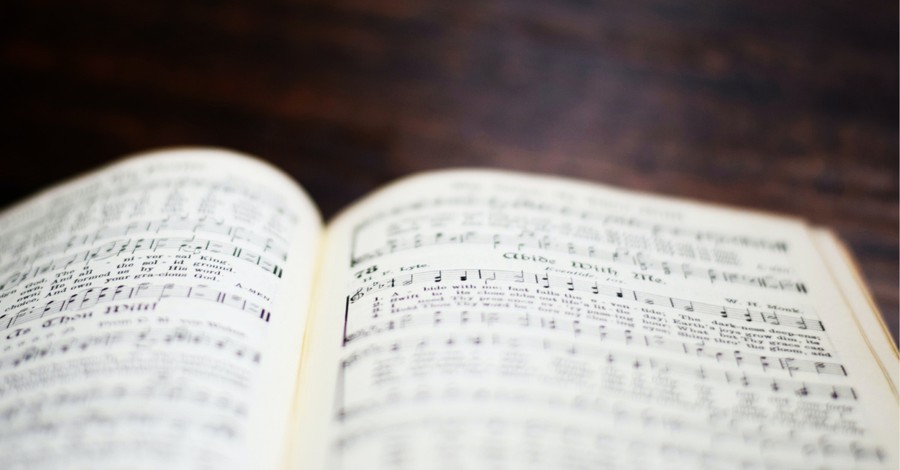
On June 5, 1865, Anglican priest and polymath Sabine Baring-Gould wrote the processional hymn, "Onward, Christian Soldiers." The hymn was originally written for children walking to Horbury St. Peter’s Church near Wakefield in Yorkshire, England. Far from the cultural stereotype that the hymn earned Baring-Gould— that of a militant, narrow-minded clergyman fearful of and fighting against new knowledge— he actually led an impressive life, remaining keenly inquisitive about the world God has made.
The song, which he wrote in about 15 minutes, was originally titled “A Hymn for Procession with Cross and Banners.” It was inspired by biblical imagery of the Christian as a soldier and only became popular when composer Arthur Sullivan wrote a new melody for it later. Its military imagery, out of step with today’s cultural vibes, has led many contemporary hymnbook compilers to leave it aside.
Like other Anglican clergymen of his day, Baring-Gould was involved in more than serving parishes and writing children’s processionals. He was the son and heir of a noble family but decided on a career in the Church. Ordained in 1864, he became curate at the church at Horbury Bridge, where a year later he would pen “Onward, Christian Soldiers.” There, he met Grace Taylor, the then-teenaged daughter of a local miller. The two fell in love and, despite a considerable age gap, were married for 48 years until her passing. Together, they raised 15 kids, all but one of whom survived into adulthood.
Even while serving in parishes, Baring-Gould was a prolific writer, with nearly 1,300 titles to his credit. These include novels and short stories published in a variety of journals, a 16-volume series called Lives of the Saints, modern biographies, travelogues, hymns (the best-known of which aside from “Onward, Christian Soldiers” being “Now the Day Is Over”), sermons, apologetics, and cultural and anthropological studies. He had an international reputation as an antiquarian. His Curious Myths of the Middle Ages, a study of 24 medieval superstitions and their variants and antecedents, was particularly popular and was even cited by sci-fi and horror writer H.P. Lovecraft. He also published The Book of Werewolves, a collection of stories still widely cited.
To do some of this work, Baring-Gould studied and mastered several ancient, medieval, and modern languages. Along with more common languages for British scholars of the period, he knew Basque, an obscure language unrelated to any other, sufficiently well enough to translate a Basque Christmas carol into English as “The Angel Gabriel from Heaven Came.”
Baring-Gould’s God-driven curiosity about the world only furthered when he inherited his family estate in Devon in 1872. He moved there as both squire and vicar in 1881, devoting a great deal of time to studying and writing about Devon and the West Country. He transcribed hundreds of folk songs from the region that would otherwise have been lost, even publishing several volumes in collaboration with Cecil Sharp, a central figure in preserving and promoting English folk songs in the Edwardian period. Baring-Gould considered these collections of songs his most important work.
He also earned an international reputation in the developing field of archaeology. With his friend Robert Burnard, Baring-Gould began the first scientific archaeological excavations of Dartmoor in Devon, which includes the largest concentration of Bronze Age remains in Britain. The two initially concentrated on hut circles, depressions in the ground outlined with stones that were the foundations for conical wooden huts thousands of years ago, before launching a more systematic investigation of the region. As secretary of the group, Baring-Gould authored the first 10 annual reports of the Dartmoor Exploration Committee. This began a systematic exploration and occasional restoration of the region’s prehistoric sites. Beyond the annual reports, he published several other works on Dartmoor.
As if all this were not enough, Baring-Gould was also an amateur ironworker and painter. Prior to his ordination, while a teacher at a boys’ school, he designed the ironwork for the school and painted scenes from The Canterbury Tales and The Faerie Queene on the jambs of the windows.
In all, Baring-Gould was far more than the lyricist for “Onward, Christian Soldiers.” As Anthony Esolen commented, he could only have lived in the 19th century, when scholarship was not so specialized, and amateurs could still make important contributions to a wide range of fields. For our era, he is a remarkable example of a person who used the prodigious talents God had given him to serve the church, his community, and the wider world.
This Breakpoint was co-authored by Dr. Glenn Sunshine. For more resources to live like a Christian in this cultural moment, go to breakpoint.org.
Publication date: June 5, 2023
Photo courtesy: Zack Smith/Unsplash
The views expressed in this commentary do not necessarily reflect those of CrosswalkHeadlines.
BreakPoint is a program of the Colson Center for Christian Worldview. BreakPoint commentaries offer incisive content people can't find anywhere else; content that cuts through the fog of relativism and the news cycle with truth and compassion. Founded by Chuck Colson (1931 – 2012) in 1991 as a daily radio broadcast, BreakPoint provides a Christian perspective on today's news and trends. Today, you can get it in written and a variety of audio formats: on the web, the radio, or your favorite podcast app on the go.
John Stonestreet is President of the Colson Center for Christian Worldview, and radio host of BreakPoint, a daily national radio program providing thought-provoking commentaries on current events and life issues from a biblical worldview. John holds degrees from Trinity Evangelical Divinity School (IL) and Bryan College (TN), and is the co-author of Making Sense of Your World: A Biblical Worldview.











